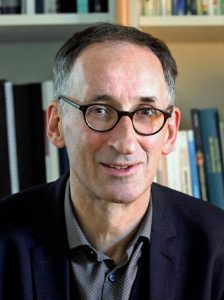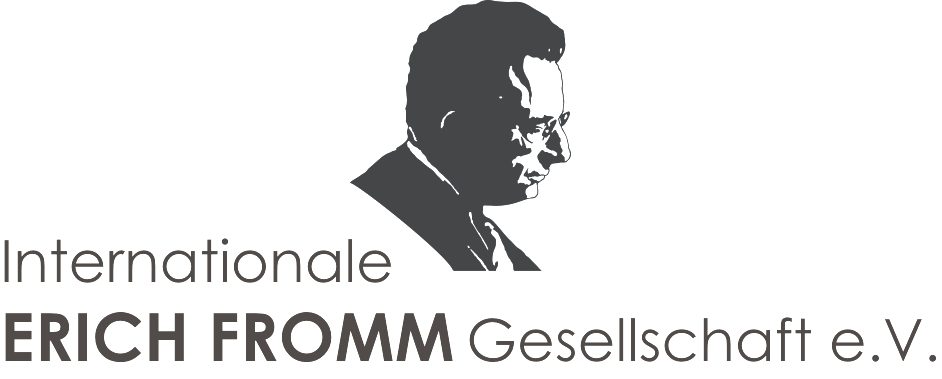Erich-Fromm-Prize 2023 to Prof. Dr. Dr. Thomas Fuchs
on Saturday, March 18, 2023, at 11 a.m. at the Hospitalhof Education Center in Stuttgart

By choosing Heidelberg psychiatrist and philosopher Thomas Fuchs as the winner of the Erich Fromm Prize 2023, the jury deliberately wanted to set an example. The doctor of medicine and philosopher holds the Karl Jaspers Professorship for Philosophical Foundations of Psychiatry and Psychotherapy at the University of Heidelberg.
One of his main concerns is to take a critical look at the theoretical premises of neuroscientific brain research. The brain is not, as is often assumed, a particularly differentiated and highly complex computer; a comparison with computational models (such as adaptive algorithms) is not suitable for understanding the function of the human brain. Nor is it the case that the perception of reality is only a product of the brain.
Contributions
| Prof. Jürgen Hardeck | Greeting |
| Dr. Elisabeth von Thadden | Laudatory speech for the award winner: “A defender of the human being: The physician, philosopher and anthropologist Thomas Fuchs” |
| Int. Erich-Fromm-Society | Award certificate |
| Prof. Dr. Dr. Thomas Fuchs | Erich Fromm Lecture 2023: “Embodiment and Relationship For a Contemporary Humanism” |
| The recording of the livestream of the award ceremony on YouTube |
Even in the simplest forms of life, Fuchs demonstrates that life is only ever possible in relation to the environment. The neuronal activity of the brain – like all life – therefore requires a permanent relationship to the body and the environment. Fuchs’ main work, first published in 2007 and now in its 6th edition, is therefore entitled “The brain – an organ of relationship”. To put it in his own words: “This book arose from the endeavor to place the advances in brain research in an anthropological context that allows us to understand the brain as a mediating organ for our physical, mental and spiritual relationships with the world – as an organ of relationship.” (S. 9.)
Fuchs summarizes the results of his research as follows: “Despite all its fascinating achievements, the brain is not a creator of the world, not a ‘cosmos in the head’, but primarily an organ of mediation, transformation and modulation. It is embedded in the relationships of the organism to its environment and in the relationships of humans to other humans. It absorbs them, carries them and makes them possible, but without producing them.” (S. 322.)
This understanding of the function of the brain as a relational organ shows a striking similarity to Erich Fromm’s social psychological thinking and the concept of (social) character. In the mid-1930s, Fromm recognized that our thoughts, feelings and actions cannot be explained by an intrinsic, instinctive dynamic of an innate drive, but rather by the necessity of having to relate to reality, to other people and to ourselves, so that it is the internalized experiences of relatedness in the form of character formations (or memories) that determine our thoughts, feelings, fantasies and actions anew. There is therefore no doubt that Fromm would agree wholeheartedly with Fuchs’ insight: “The brain represents the highly plastic matrix for all mental and spiritual faculties that the child acquires in the course of its socialization, for all culturally determined learning processes. Once formed, neuronal structures or connection patterns serve as open loops that are available, which of course cannot be reshaped at will – that is the purpose of memory, but which only reflect the connections and relationships that the individual has experienced and incorporated.” (S. 327.)
The laudatory speech was held by journalist and non-fiction author . She has been an editor at Die Zeit since 1999 and has been responsible for the philosophical pages Sinn&Verstand since 2018. For the artistic supporting program we were able to win the .
Background
The Erich Fromm Prize, endowed with €10,000, has been awarded annually by the International Erich Fromm Society since 2006. The prize is awarded to individuals who have made or are making outstanding contributions to the preservation or recovery of humanistic thought and action in the spirit of the famous social psychologist Erich Fromm (1900-1980) through their scientific, social, socio-political or journalistic commitment.
Previous prizewinners include Noam Chomsky, Eugen Drewermann, Anne-Sophie Mutter, Georg Schramm, Gesine Schwan, Götz Werner, Christel and Rupert Neudeck, John Neumeier, Hartmut Rosa, Konstantin Wecker, Gerhart Baum, Daniel and Sabine Röder (Pulse of Europe), Paul Mason, Maja Göpel and Ueli Mäder.


Kommentare sind geschlossen